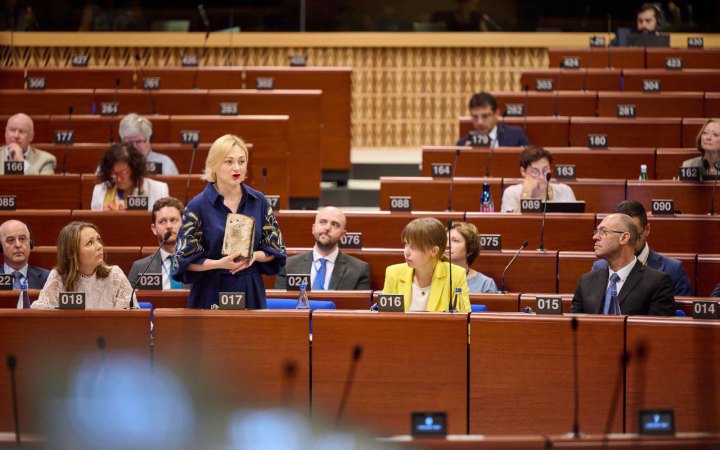The Parliamentary Assembly of the Council of Europe has recognised Russia's genocidal intent to destroy Ukrainian cultural heritage and identity.
This was announced by a member of the Ukrainian delegation to PACE, MP Yevheniya Kravchuk.
"My resolution "Countering the erasure of cultural identity in times of war and peace" was adopted by the Parliamentary Assembly of the Council of Europe - 105 votes in favour! The document contains unprecedented provisions to support our culture and preserve Ukrainian identity!" the MP said.
According to her, the PACE resolution condemns Russia's systematic state policy of Russification, which has been carried out since 2014 in the occupied territories of Ukraine. The document stipulates that the deliberate destruction of cultural heritage and the erasure of cultural identity in Ukraine are war crimes, crimes against humanity and indicate a specific genocidal intention to destroy the Ukrainian national identity.
The MP added that on 26 June, an amendment on the oppression of indigenous peoples of the Russian Federation was also adopted.
"The aggressor is pursuing a policy of Russification against numerous indigenous peoples of the country, also gradually erasing their cultural identity and depriving them of their historical memory!" Kravchuk added.
The PACE resolution also calls on member states to
- ratify Council of Europe conventions on the protection of cultural heritage;
- strengthen sanctions for arbitrary military destruction not justified by "urgent military necessity"
- expand the scope of its legal regulation to include violations against cultural heritage, including cultural cleansing;
- provide for full reparation on the basis of international law, in particular through restitution, compensation, rehabilitation, satisfaction and guarantees of non-repetition of destruction;
- strengthen the ability to combat illicit trafficking in cultural property, in particular by sanctioning all those who carry out or facilitate the illicit movement of or trade in artefacts, conduct or organise illegal excavations, or use artefacts for their own purposes (exhibitions, auctions, scientific publications), and ensure that the authorities and state institutions involved are held accountable for these actions;
- develop training for military, police, customs and justice officials to facilitate the prevention, investigation and prosecution of cultural heritage offences;
- Raise awareness of how propaganda, imperial and neo-imperial practices, including the ideology of the ‘Russian world’, can create the basis for violations of international law, including against cultural heritage;
- raise awareness of the targeted indoctrination and militarisation of Ukrainian children in the occupied territories by the Russian Federation.
According to the MP, the organisation's member states will help Ukraine collect, record, document and preserve evidence of crimes committed by Russia against tangible and intangible cultural heritage in order to assess damages and obtain reparations, promote the digitisation of cultural heritage and property, and develop projects for cultural heritage, support cultural vitality and cultural exchanges, providing support and resources to artists, writers, musicians and other cultural professionals, as well as finance.








